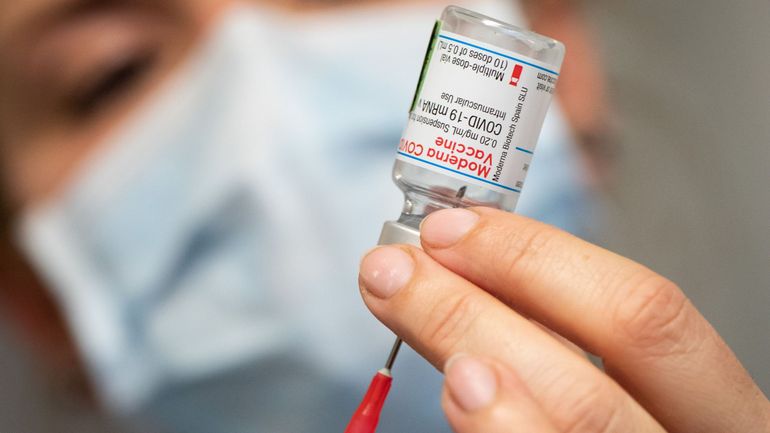It is "too early" to consider administering a fourth dose of a coronavirus vaccine to the general population, announced the Covid-19 Taskforce of the European Centre for Disease Prevention and Control (ECDC) and the European Medicines Agency (EMA) on Wednesday.
While fourth doses – also called second boosters – can be administered to adults aged 80 and over, EDCD and EMA agreed that there is currently "no conclusive evidence" that there is an added value of a fourth dose for the general population.
However, the agencies also stressed that no safety concerns have emerged from studies on additional boosters, and full vaccination (including a booster dose) remains the most effective way to prevent severe illness during the current pandemic.
Related News
- Updated strategic plan for COVID-19 could and should be our last, says WHO
- 'Too little scientific evidence' for second booster dose in Belgium
- Number of Covid-19 infections in Belgium slowly decreasing
Evidence on the effects of a fourth dose comes largely from Israel, where data indicate that a second booster given at least four months after the first booster restores antibody levels without raising any new safety concerns.
"Data also suggest that a second booster provides additional protection against severe disease, although the duration of the benefits is not yet known and the evidence is still limited," the agencies stated.
ECDC and EMA also urged EU citizens to complete their schedules for both the initial and booster vaccinations, in line with national recommendations. As of the end of March 2022, 83% of adults in the EU had received full initial vaccinations and only 64% had received a booster dose.
Additionally, the agencies stated that "re-vaccination campaigns" could start in autumn, and authorities could consider the best timing for extra shots, while possibly taking advantage of updated vaccines by then.
What is Belgium doing?
In Mid-March, Belgium's Vaccination Taskforce made it clear that it had no plans to extend fourth doses beyond those with reduced immunity before the summer.
For the time being, Belgium is only administering a fourth dose to immunocompromised people, such as those with congenital immune disorders, people who receive chronic kidney dialysis, certain HIV patients, people with blood cancer or other malignant tumours or patients who have undergone a stem cell or organ transplant.
"The general population will not (yet) be offered a fourth dose. At the moment, there is still too little scientific evidence to justify a fourth shot for the general population, especially in the current context of the epidemic," Gudrun Briat of the Vaccination Taskforce told The Brussels Times in March, adding that the authorities would have to look into what the situation will be after the summer.
"It is possible that we will offer another dose to the elderly and those with underlying conditions, and maybe to healthcare staff then," she said, adding that a decision on this has yet to be made.
As of Wednesday 6 April, 89% of the adult population is fully vaccinated, while just 75% of adults received a booster dose, according to the latest figures by the Sciensano national health institute.

